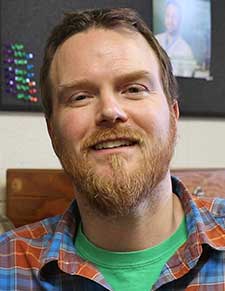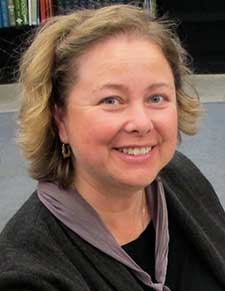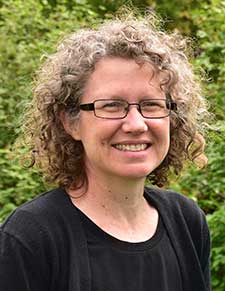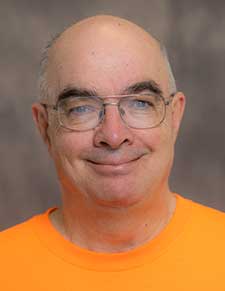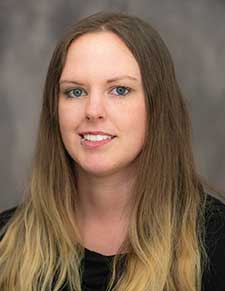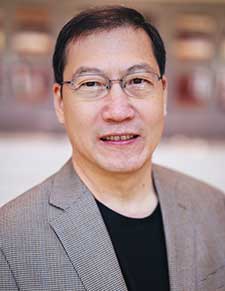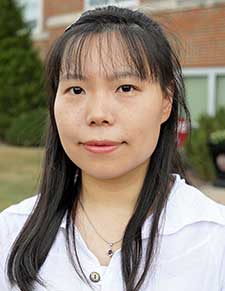Faculty members at seven West Virginia colleges and universities were recently awarded approximately $150,000 in supplemental funding for scientific equipment and curriculum improvements.
West Virginia Science & Research (WVSR), a division of the West Virginia Higher Education Policy Commission (Commission), awarded six Instrumentation Grants and one Innovation Grant to eligible instructors and researchers across the state. These grants offer assistance to primarily undergraduate institutions to ensure students have the necessary modern resources for furthering their studies in science, technology, engineering and mathematics (STEM). Instrumentation Grants allow the purchase of scientific equipment for laboratory enhancement. Innovation Grants also fund scientific equipment as well as curriculum improvements, minor renovations and classroom instruction.
“Investing in our undergraduates will pay off in the future by better preparing them for graduate school and their future careers,” said Jan Taylor, Ph.D., director of science and research at the Commission. “We are happy to help provide modern equipment and instruction to these students and instructors.”
Instrumentation and Innovation Grants are supported by the Research Challenge Fund. The West Virginia Legislature established this fund in 2004 to further build research capacity and competitiveness at state colleges and universities. The fund is managed and administered by WVSR.
Instrumentation Grant Awardees:
James Wood, Ph.D., assistant professor of biology at West Liberty University, received $19,864 to enhance aquatic ecology teaching and research in the upper Ohio River valley’s streams and rivers. Two ecology laboratories will be equipped with water quality monitoring tools including a BenthoTorch to measure benthic algae in local streams; a Fisher Scientific benchtop drying oven to facilitate research focused on mass balance and carbon cycling rate; and a Hach water velocity flow meter to conduct habitat assessments in streams and rivers.
Anna Edlund, Ph.D., associate professor of biology at Bethany College, received $20,000 to purchase instruments for sterilization of laboratory materials and the disposing of biohazard waste as well as training in the methodology of sterile technique. Specific instrument purchases include a Tuttnauer 3870EL-D Sterilizer and a ProLab Diagnostics two foot, ProSafe Class II cabinet.
Laura Robertson, Ph.D., associate professor of biology at Shepherd University, received $20,000 to purchase a Biolog GEN III MicroStation System to enable rapid biochemical identification and characterization of bacteria and filamentous fungi. This instrument facilitates functional characterization of individual species and microbial communities allowing researchers to move beyond species identification to further understanding of its functional role within a given environment.
Matthew Scanlon, Ph.D., professor of chemistry at Fairmont State University, received $20,000 to purchase a new Nuclear Magnetic Resonance (NMR) spectrometer for the Forensic and Analytical Chemistry Technology (FACT) Center. This will replace a 17-year-old spectrometer currently owned by the department. The purchase will also support American Chemical Society requirements, which state the instrument is necessary for an institution to be recognized as a nationally approved chemistry program.
Kristy Henson, assistant professor of forensic science at Fairmont State University, received $12,806 for increasing engagement in forensic science curriculum with state-of-the-art technology. Henson intends to do this by purchasing modern equipment including a M3F Forensic Comparison Microscope, an Artec Eva Lite 3D Light Scanner and a new computer to run both devices in order to simulate authentic workplace experiences.
Xiaoping Sun, Ph.D., professor of chemistry at the University of Charleston, received $17,000 to purchase a Fluorescence Spectrophotometer for studies in chemical and electronic properties of oxo-uranium ions, specifically the Shimadzu RF-6000 fluorescence spectrophotometer and necessary accessories. The instrument will be used for characterization of major oxo-uranium ions and the investigation of charge-transfer reduction by organic and inorganic substances.
Innovation Grant Awardee:
Hong Yin, Ph.D., assistant professor of chemistry at Concord University, received $40,000 to purchase a Nuclear Magnetic Resonance (NMR) spectrometer with capability to characterize full molecular structure. The purchase of this instrument will also finalize the necessary accreditation requirements from the American Chemical Society.
West Virginia Science & Research, a division of the West Virginia Higher Education Policy Commission, manages state and federal research grants including the West Virginia’s National Science Foundation’s (NSF) Established Program to Stimulate Competitive Research (EPSCoR) Track-1 grant, NSF’s Inclusion across the Nation of Communities of Learners of Underrepresented Discoverers in Engineering and Science (INCLUDES) and the Research Challenge Fund.

